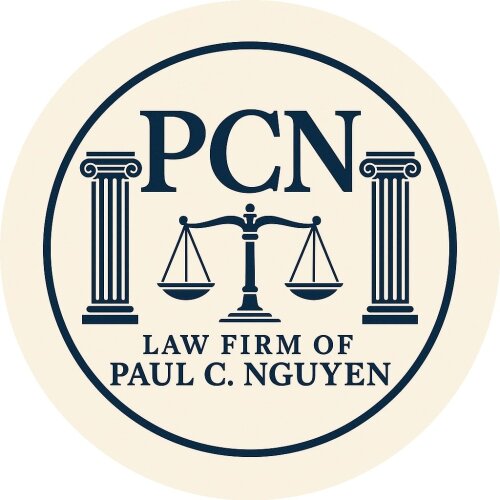Best Intellectual Property Lawyers in California
Share your needs with us, get contacted by law firms.
Free. Takes 2 min.
Or refine your search by selecting a city:
List of the best lawyers in California, United States
United States Intellectual Property Legal Questions answered by Lawyers
Browse our 1 legal question about Intellectual Property in United States and read the lawyer answers, or ask your own questions for free.
- Intellectual property
- Someone in india is using my children's photos on a court case that I have nothing to do with
-
Lawyer answer by Ahire & Associates
You can file a complaint with the cyber cell of the police department if the photos were obtained or used in a manner that violates privacy laws. The Information Technology (IT) Act, 2000, includes provisions for the protection of privacy.Please...
Read full answer
About Intellectual Property Law in California, United States
Intellectual Property (IP) law is a field of law that protects the creations of the mind. These creations include inventions, literary and artistic works, designs, symbols, names, and images used in commerce. In California, IP law is especially significant due to the state's leadership in technology, entertainment, biotechnology, and creative industries. The state is home to Silicon Valley, Hollywood, and many universities, which makes intellectual property an important asset for many individuals and businesses. IP law in California involves federal protections such as patents, trademarks, copyrights, and trade secrets, along with important state-level considerations.
Why You May Need a Lawyer
Legal advice in intellectual property matters can be critical for a variety of situations. Individuals and businesses commonly seek an IP lawyer for:
- Registering patents, trademarks, or copyrights for protection of their inventions or creative works
- Enforcing their rights against people or businesses who infringe on their intellectual property
- Defending against accusations of infringement
- Drafting and reviewing licensing agreements or contracts involving intellectual property
- Conducting due diligence during mergers or acquisitions involving IP assets
- Protecting confidential information as trade secrets
- Resolving disputes related to IP ownership, especially in partnerships or employment settings
- Navigating the complexities of online content and technology law
- Protecting brand identity and reputation in a competitive market
IP cases often require specialized legal knowledge and an understanding of both state and federal laws. Having legal guidance can make a significant difference in effectively protecting your rights and avoiding costly mistakes.
Local Laws Overview
California follows federal laws regarding patents, copyrights, and trademarks, but also has its own statutes that impact IP. State laws are especially significant in areas like trade secrets, right of publicity, and unfair competition:
- Trade Secret Protection: California has adopted the Uniform Trade Secrets Act, which protects confidential business information that gives a competitive advantage. Employers must take reasonable steps to keep information secret for it to qualify.
- Right of Publicity: California law gives individuals the right to control the commercial use of their name, voice, signature, photograph, or likeness. This is especially relevant in the entertainment industry.
- Unfair Competition: California’s Unfair Competition Law prohibits deceptive, unfair, or fraudulent business practices, including those involving misuse of intellectual property.
- State Trademark Registration: In addition to federal registration, California offers state-level trademark registration with the Secretary of State for businesses that operate only within the state.
- Special Considerations for Creative Industries: California courts have decades of experience with complex disputes involving movies, music, software, and innovative technologies.
Understanding both local and federal law is crucial for effective IP protection in California.
Frequently Asked Questions
What types of intellectual property protection are available in California?
The main types are copyrights, trademarks, patents, and trade secrets. Each one protects different aspects of creative or business activity, such as inventions, brand names, logos, original works of art, and confidential business information.
Do I need to register my intellectual property in California?
Copyright protection exists automatically for original works, but registering with the US Copyright Office provides legal advantages. Patents and trademarks must be registered at the federal level for nationwide protection, though California offers state trademark registration for local use. Trade secrets do not need to be registered but must be kept confidential.
How do I stop someone from using my intellectual property without permission?
You can send a cease and desist letter, file a lawsuit for infringement, and in certain cases, notify platforms hosting the infringing material. A lawyer can help choose the best enforcement strategy and represent you in negotiations or court.
What is a trade secret, and how is it protected in California?
A trade secret is information that has independent economic value from not being generally known and is subject to reasonable efforts to keep it secret. California law provides remedies against unauthorized use or disclosure.
Can I protect my idea without a patent?
Ideas alone are not protectable. Only inventions that meet certain requirements (novelty, usefulness, non-obviousness) can be patented. However, if the idea is confidential and gives business value, it may be protectable as a trade secret.
What is the right of publicity, and why is it important in California?
The right of publicity allows individuals to control and profit from the commercial use of their identity. This is important for entertainers and other public figures, and California offers some of the strongest protections in the country.
How long does intellectual property protection last?
It varies: patents typically last 20 years, copyrights last the author's life plus 70 years, and trademarks may last indefinitely as long as they remain in use and are properly renewed. Trade secrets can last as long as the information remains confidential.
What are the penalties for infringing someone's intellectual property in California?
Penalties include monetary damages, injunctions to stop infringing activity, destruction of infringing goods, and in some cases, punitive damages. Intentional infringement may result in higher penalties.
What should I do if I am accused of violating someone else's intellectual property?
Consult a lawyer immediately. Do not contact the accuser directly or admit fault. An attorney can assess the claim, respond appropriately, and help you negotiate or defend against allegations.
Where do I file a lawsuit for intellectual property infringement in California?
Most IP cases are filed in federal court, especially for patents, copyrights, and federal trademarks. Some state law issues, such as trade secrets or right of publicity, may be litigated in California state courts.
Additional Resources
Several organizations and agencies can assist with intellectual property matters in California:
- United States Patent and Trademark Office (USPTO) - for federal patent and trademark issues
- United States Copyright Office - for copyright registration and inquiries
- California Secretary of State - for state trademark registration and business resources
- California Lawyers for the Arts - provides education and legal referrals to artists and innovators
- State Bar of California - offers guidance on finding qualified intellectual property attorneys
- Local Small Business Development Centers - provide help for entrepreneurs with IP questions
Next Steps
If you need legal assistance with intellectual property in California, start by identifying the type of protection you need or the issue you are facing. Gather any relevant documentation, such as registration certificates, contracts, or evidence of infringement. Consider consulting a licensed California attorney who specializes in intellectual property law for advice tailored to your situation. Many lawyers offer initial consultations to assess your case. Taking timely and informed action can help you safeguard your valuable ideas, creations, and business interests.
Lawzana helps you find the best lawyers and law firms in California through a curated and pre-screened list of qualified legal professionals. Our platform offers rankings and detailed profiles of attorneys and law firms, allowing you to compare based on practice areas, including Intellectual Property, experience, and client feedback.
Each profile includes a description of the firm's areas of practice, client reviews, team members and partners, year of establishment, spoken languages, office locations, contact information, social media presence, and any published articles or resources. Most firms on our platform speak English and are experienced in both local and international legal matters.
Get a quote from top-rated law firms in California, United States — quickly, securely, and without unnecessary hassle.
Disclaimer:
The information provided on this page is for general informational purposes only and does not constitute legal advice. While we strive to ensure the accuracy and relevance of the content, legal information may change over time, and interpretations of the law can vary. You should always consult with a qualified legal professional for advice specific to your situation.
We disclaim all liability for actions taken or not taken based on the content of this page. If you believe any information is incorrect or outdated, please contact us, and we will review and update it where appropriate.
Browse intellectual property law firms by service in California, United States
California, United States Attorneys in related practice areas.
Browse intellectual property law firms by city in California
Refine your search by selecting a city.
















